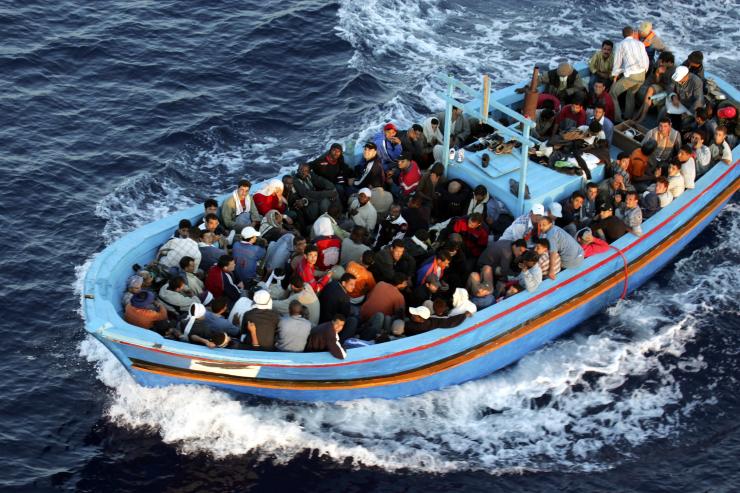The German government will drop its opposition to controversial parts of the EU migration deal, despite fierce opposition from the ruling Greens, who claim the move would threaten the rule of law in Europe.
Over the weekend, Green Foreign Minister Annalena Baerbock reiterated her party’s categorical opposition to the so-called crisis regulation, which is part of a wider EU migration reform and has been the subject of ongoing negotiations between EU governments.
But Chancellor Olaf Scholz of the SPD, the Greens’ senior partner, intervened on Wednesday to overrule his Green minister and declare that Germany would not block the new regulation.
“Nothing will stop” Berlin in connection with the crisis regulation in Brussels, Scholz said, as the FAZ has learned from sources within the Chancellery.
The liberal FDP, the second junior partner in the three-party government, also put pressure on the Greens, as FDP leader and finance minister Christian Lindner told FAZ on Wednesday that Germany must not block a “responsible compromise”.

In July, EU governments agreed on key points for reforming the EU’s Common European Asylum System. The draft includes mandatory relocation of asylum seekers in all member states and processing applications with little chance of being accepted at the EU’s external border.
However, governments could not agree on the finer details, which blocked progress in inter-institutional negotiations with the European Commission and the European Parliament, preventing the reform from becoming law.
Germany has been criticised for allegedly delaying the negotiations because of the Greens’ discomfort with the crisis regulation, which provides stricter screening rules and lower accommodation standards for asylum seekers in times of extraordinary migratory pressure.
The crisis regulation is “a security risk for the European rule of law”, Green MP and migration expert Julian Pahlke had told Welt. “From my point of view, this cannot be approved under any circumstances,” he added.
The coalition is currently struggling to overcome apparent tensions between the two junior partners, with Lindner telling the FAZ that the parties have “fundamentally different views”.
While most political infighting has been over environmental regulations, the latest row has been over a more generous welfare system, which Green Family Minister Lisa Paus wanted to push through despite Lindner’s opposition. After lengthy negotiations and a compromise, the cabinet approved the package on Wednesday.
With Scholz’s intervention and Lindner’s increasing attempts to raise the FDP’s profile on migration, further tensions are likely given the Greens’ pro-migration stance.
The finance minister has stressed that Germany must crack down on irregular migration and take a tougher stance.
“We can no longer accept that since the Merkel government’s refugee policy, control of access to our society has been lost,”
Source: EURACTIV






